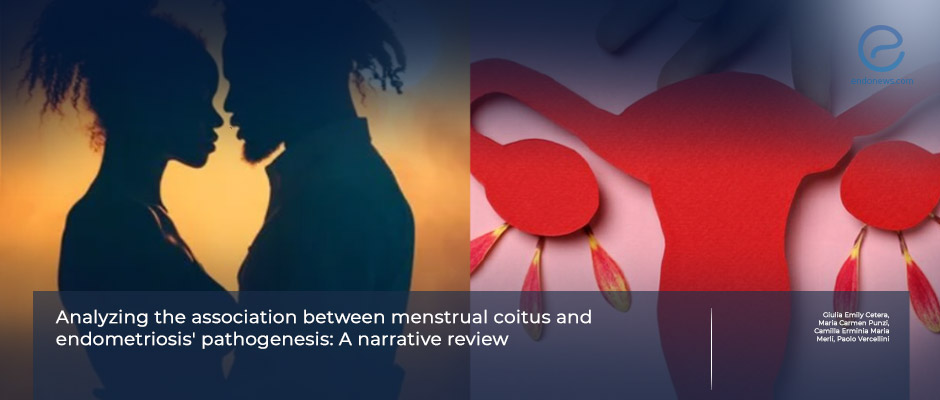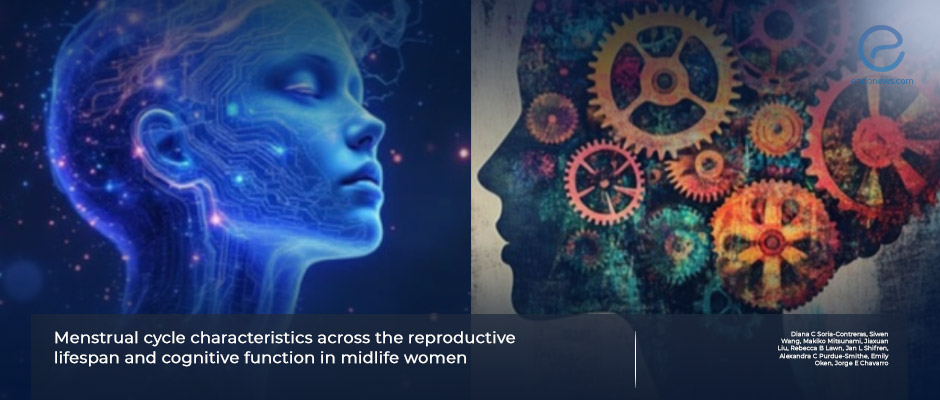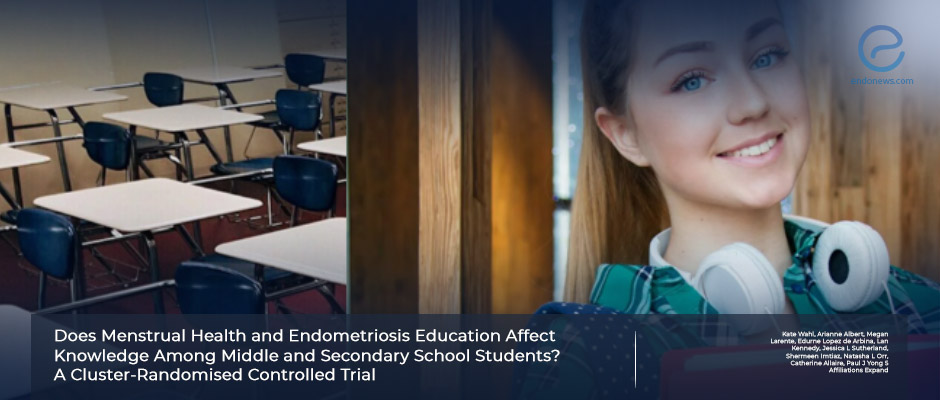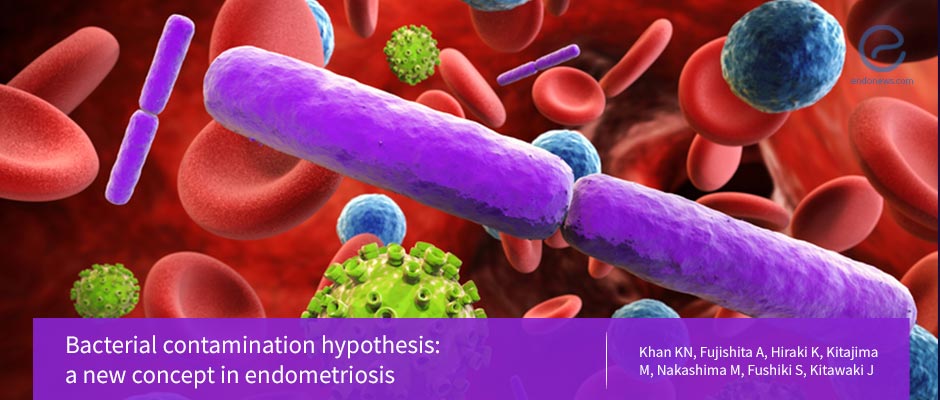Could sexual activity during menses be a risk factor in endometriosis?
Italian researchers recently published a literature review in Women’s Health exploring the potential role of endometriosis and menstrual sexual activity. The retrograde menstruation theory, first proposed in the early 20th century, remains a popular hypothesis suggesting that menstrual debris contribute to the…
Key Points Lay SummaryImpact of Menstrual Cycle on Cognitive Function in Midlife Women
Dementia, which affects women at more than 1.7 times the rate of men, continues to be a growing health concern, with potential links to hormonal changes. Estrogen, known for its neuroprotective effects, influences cognitive functions such as verbal memory, fluency,…
Key Points Lay SummaryMenstrual Health & Endometriosis Education Increases the Awareness in Students
The main symptoms of endometriosis include dysmenorrhea, dyspareunia, and chronic pelvic pain that may result in social and developmental disturbances such as abstinence from school or work. There is a significant diagnostic delay of endometriosis diagnosis, because symptoms may be…
Key Points Lay SummaryWomen's willingness to donate menstrual blood for endometriosis research
The menstrual blood is 50-100 ml/per cycle, with 80% lost during the first three days. On the heaviest bleeding day, 2 to 8 ml may be collected from a cup worn for four hours. This fluid could be investigated by…
Key Points Lay SummaryEarly diagnosis of deep infiltrating endometriosis in adolescence
Dysmenorrhea is widely observed in adolescence, and endometriosis is one of its causes. However, endometriosis diagnosis is usually made after 25 years of age. It is clear that early diagnosis and management of this progressive disease is essential and will…
Key Points Lay SummaryPeritoneal fluid in young women with endometriosis
Many blood substances are present in peritoneal fluid due to their derivation from the transudation of blood through the peritoneal surface. Ectopic endometriotic lesions can also change the medium to contribute to the definition of the local environment of the…
Key Points Lay SummaryAssessing endometrial receptivity using menstrual blood samples in patients undergoing in-vitro fertilization
Endometrial receptivity is the endometrium's capacity to allow the embryo the chance to adhere, infiltrate, and develop while ensuring an ideal microenvironment. When impaired, it is one of the two major factors contributing to infertility along with embryo quality by…
Key Points Lay SummaryWomen With Endometriosis More Likely to Also Have Non-Specific Symptoms
Women with endometriosis are more likely to report menstrual symptoms, according to a new study published in the American Journal of Obstetrics and Gynecology. However, they are also at an increased risk of mental health disorders, other pain symptoms, bowel,…
Key Points Lay SummaryThe most common gynecologic admissions to the emergency: Endometriosis and adenomyosis
Women with endometriosis demand therapy for the most common symptoms, which are pelvic pain and infertility. Adenomyosis occurs when the endometrial glandular and stromal tissue grows into the muscular wall of the uterus, called the myometrium. Women having adenomyosis also…
Key Points Lay SummaryEndometriosis and IBS Have Different Comorbidities
Comorbidities of endometriosis and irritable bowel syndrome (IBS) are different despite several overlapping symptoms, according to a new study published in the scientific journal Human Reproduction. These comorbidities are usually related to the organ systems that are primarily involved in…
Key Points Lay SummaryNon-invasive Construction of Endometrial Organoids
Organoids are 3D culture structures established in vitro and they reflect the aspects of the tissue or the organ they represent. They are seen as important tools in the evaluation of normal development, disease course, and the prediction of the…
Key Points Lay SummaryEndometriosis & adolescents: Overcoming the diagnostic delay via education
Although the diagnosis of endometriosis is still not timely even in adults, due to its common under- or misdiagnosis in adolescents, the diagnostic delay may further cause the adolescent women to wait to seek medical treatment. A group of researchers…
Key Points Lay SummaryBody mass index, the incidence of endometriosis and the severity of dysmenorrhoea
According to a case-control study conducted by researchers from China, there is no association between body mass index (BMI) and the incidence of endometriosis. This finding contrasts with the conventional knowledge that low BMI is a risk factor for endometriosis.…
Key Points Lay SummaryEndometriotic mesenchymal stem cells may promote endometriosis
The cause of endometriosis is still debatable. Many researchers have accepted that retrograde menstruation, where the endometrial fragments released during menstruation attach and colonize the ectopic locations, is the most plausible reason. However, the numbers just do not add up.…
Key Points Lay SummaryAdolescent dysmenorrhea diagnosis and management
Endometriosis is usually diagnosed in reproductive-aged women. However, recent literature proved that clinical symptoms of endometriosis are also seen the adolescent girls and young women. Dysmenorrhea, the most common gynecologic complaint among this age group, can develop due to endometriosis.…
Key Points Lay SummaryCase-control study to develop a questionnaire for early diagnosis of endometriosis
Endometriosis, which affects 5–10% of women of reproductive age, is a chronic gynecological disease characterized by the presence of endometrial glands and stroma outside the uterus, associated with several discomforts such as pelvic pain, menstrual disorders, and infertility. Ultrasound evaluation…
Key Points Lay SummaryHow Long Does it Take to Be Diagnosed with Endometriosis?
It takes a median of eight years to reach a diagnosis of endometriosis from when the symptoms of the condition first appear confirmed a new British study. Interestingly, it seems that the earlier the symptoms appear, the later the disease…
Key Points Lay SummaryPatients preferences for the treatment of endometriosis-associated pain
Endometriosis is defined as the location of endometrial stroma and glands outside the uterine cavity. The most common presenting complaints are mainly dysmenorrhea, dyspareunia, chronic pelvic pain, and infertility, most of which relate to the menstrual period. Those women affected…
Key Points Lay SummaryAdolescent dysmenorrhea and future endometriosis
Dysmenorrhoea is typically classified as primary, or secondary due to underlying pathologies like fibroids, endometriosis, adenomyosis or uterine anomalies. Generally, long-term dysmenorrhea is present in endometriotic patient's anamnesis, but until recently, the research to clarify this connection remained retrospective. Knox et…
Key Points Lay SummaryMenstrual blood-derived stem cells
Chen et al. from the Center of Diagnosis and Treatment of İnfectious Disease, Zhejiang University, China penned this recent review in the Journal of Stem Cell Research Therapy which is presenting the clinical potential of MenSCs (Menstrual blood-derived stem cells). …
Key Points Lay SummaryIs the mystery for progression of endometriosis hiding out in abnormally located endometrial cells?
This prospective study was conducted by Hapangama et al. in Research İnstute of the University of Liverpool, UK, and the results have recently published in the Journal of Human Reproduction. The authors hypothesized that abnormally located endometrial basalis-like (SSEA1/nSOX9+)cells could be contributing to…
Key Points Lay SummaryCould Endometriosis Be Caused by Bacteria?
A new concept called the bacterial contamination hypothesis in endometriosis has been proposed for the first time by researchers in Japan. This means that new potential therapies approaches could exist for this condition in addition to the conventional estrogen-suppressing therapies.…
Key Points Lay SummaryMenstrual Effluent Can Change the Future of Endometriosis
During Endometriosis Awareness Month, Warren et al. published a paper entitled “Analysis of menstrual effluent: diagnostic potential for endometriosis” in Molecular Medicine. This paper relies heavily on the theory of retrograde menstruation, where menstrual effluent flows into the peritoneal cavity.…
Key Points Lay SummaryIs there any association between menstrual pain and ovarian cancer?
Inflammation may be important in ovarian carcinogenesis. Epidemiological studies show that inflammatory conditions such as endometriosis and pelvic inflammatory disease have been associated with an increased risk of ovarian cancer, while regular use of non-steroidal anti-inflammatory drugs has reduced associated…
Key Points Lay SummaryGlycodelin and altered endometrial function in endometriosis
A laparoscopic examination is the only diagnostic tool for endometriosis to date. Since the procedure is invasive, there has been much effort by researchers to develop a biomarker for non-invasive diagnosis of endometriosis. To this end, there has been growing…
Key Points Lay SummaryRetinoic Acid Signaling Involved in Endometrial Decidualization
Decidualization occurs in the eutopic endometrium during the luteal phase and is controlled by signaling pathways such as cyclic adenosine monophosphate (cAMP) and progesterone. Researchers from the Northwestern University School of Medicine reported in their recent paper entitled "Altered Retinoid…
Key Points Lay SummaryTFF3 May Be Involved in Endometriosis Research Suggests
Levels of a protein called TFF3 are significantly increased in the peritoneal cavity (the abdominal space) of women with endometriosis, found a study published in the scientific journal Reproductive Sciences. This increase was in line with levels of other known…
Lay SummaryElagolix (ABT-620) for endometriosis pain?
Elagolix is an orally active gonadotropin-releasing hormone antagonist that has just recently completed Phase 3 clinical trial for endometriosis-associated pain (NCT01931670). The review article by Alessandro et al in Archives of Gynecology and Obstetrics summarized the current research findings on…
Key Points Lay Summary
 By Nasuhi Engin Aydin
By Nasuhi Engin Aydin

 By Selma Oransay
By Selma Oransay

 By Hale Goksever Celik
By Hale Goksever Celik




 By Eylül GÜN
By Eylül GÜN

 By Özge Özkaya
By Özge Özkaya





 By Timur Seckin
By Timur Seckin

 By Yu Yu
By Yu Yu


 By Nadire Duru
By Nadire Duru







 By Kasthuri Nair
By Kasthuri Nair



 By Murat Osman
By Murat Osman

